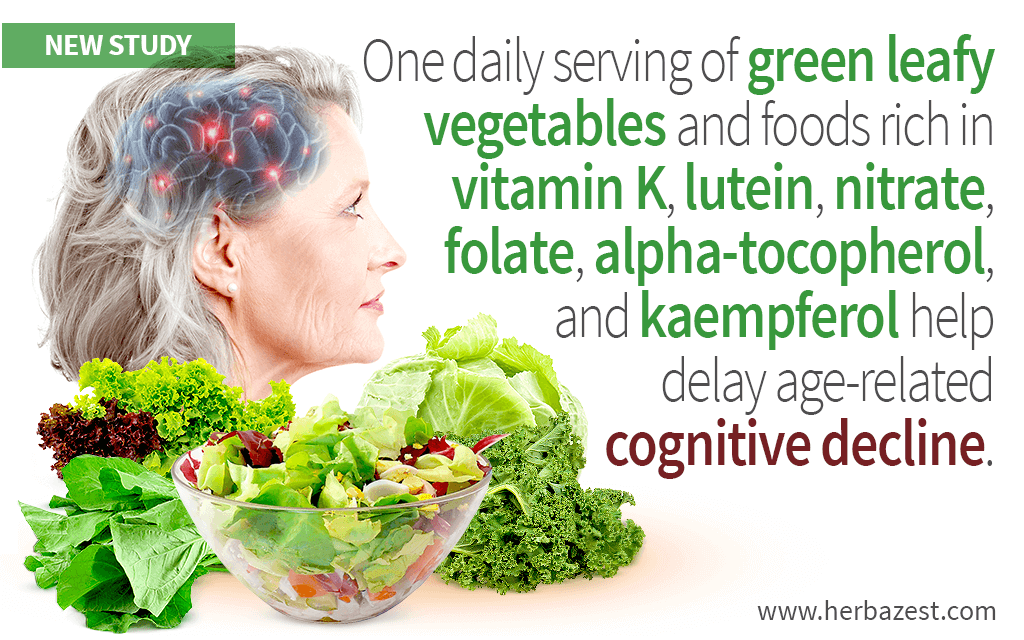It is widely accepted that brain functions, such as cognitive performance, alertness, and motor skills are naturally affected by age. Although neurons are the longest living cells in the body, large numbers of them die during a life time, most of them for natural reasons and others due to neurological diseases, like Parkinson, Alzheimer, and Huntington. Extensive research have been done in order to find a way to slow down the process of cognitive decline. Whereas the answers remain elusive, some light has been shed on the importance of a balanced diet,1 and this particular study focuses on the consumption of leafy vegetables, such as collard greens, kale, spinach, lettuce, and mustard greens, which might play a role in sustaining brain functions.
The Study
A team of scientists, led by Martha Clare Morris, ScD, Professor of Epidemiology at Rush University (Chicago, Illinois) investigated the relationship between cognitive decline and the primary nutrients and supporting compounds in green leafy vegetables, including vitamin K (phylloquinone), lutein, betacarotene, nitrate, folate, kaempferol, and alpha-tocopherol.
The Memory and Aging Project recruited 960 volunteers, ages 58-99, who completed a food frequency questionnaire and had at least two cognitive assessments over the course of four years and seven months. The model of the study took into account a wide number of variables, including age, sex, education, participation in cognitive activities, physical activities, and smoking habits, as well as seafood and alcohol consumption.
The Results
The consumption of green leafy vegetables was associated with well-preserved brain functions in healthy adults. Higher intakes of each of the nutrients and bioactives in green leafy vegetables, except beta-carotene, were individually associated with slower cognitive decline.
What Does this Mean?
While previous research has linked vegetable consumption to a delayed loss of neural plasticity, the present study strongly suggests that specific nutrients in leafy greens can hold back cognitive decline by protecting brain functions. The consumption of approximately 1 serving per day of green leafy vegetables and foods rich in vitamin K, lutein, nitrate, folate, alpha-tocopherol, and kaempferol may help hold back age-related cognitive decline.
Other herbs that help strengthen cognitive functions are ginkgo, ginseng and maca.
Sources
- National Institutes of Health, Brain Basics: The Life and Death of a Neuron
- Neurology, Nutrients and bioactives in green leafy vegetables and cognitive decline - Prospective study, 2017
Footnotes:
- The Journal of Prevention of Alzheimer's Disease. (2016). Dietary Factors and Cognitive Decline. Retrieved November 6, 2023, from: https://www.ncbi.nlm.nih.gov/pmc/articles/PMC4758517/




